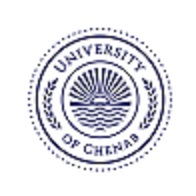Media Literacy and Fake News: Evaluating the Roles and Responsibilities of Radio Stations in Combating Fake News in the COVID-19 Era.
Keywords:
Fake News, Media Literacy, COVID-19, Radio Station, MisinformationAbstract
This study probed into media literacy and fake news by evaluating the roles and responsibilities of radio stations in combating misinformation and conspiracy theories during the COVID-19 era. Situational Crisis Communication Theory (SCCT) highlighted how to better understand communication during a crisis and safeguard an establishment's reputation during an emergency. This investigation embraced the qualitative research technique guided by the ethnography research paradigm, which supports information gathering through observations, interviews and evaluation of extant documented data to produce comprehensive accounts of social occurrences. A focus group discussion among radio station reporters was purposively used as data collection method. The questions put before reporters of the University of Lagos Radio Station (UNILAG Radio) were based on issues relating to strategies, circumstances, sources, modalities and perceptions of fake news during the COVID-19 pandemic. The study discovered that fake news is attractive to people during the time of health emergencies, such as the coronavirus pandemic, because of the attractiveness of social media and the encouragement of certain self-styled social media influencers. This factor was magnified by the fact that people were idle as a result of the lockdown and unemployment was prevalent, while reportage by mainstream media, statistics and social media trends were the convincing reasons why there was anxiety to seek information. In the process, people became victims of misinformation. The study also revealed that radio stations also leverage authentic sources of information from established organisations like the World Health Organisations (WHO) and interviews with health professionals on scientific facts. The radio station reporters agreed that transmitting fake news about COVID-19 should have consequences, and the station school quickly corrected the wrong information and offered an apology.
Downloads
Published
Issue
Section
License
Copyright (c) 2022 Authors

This work is licensed under a Creative Commons Attribution 4.0 International License.













